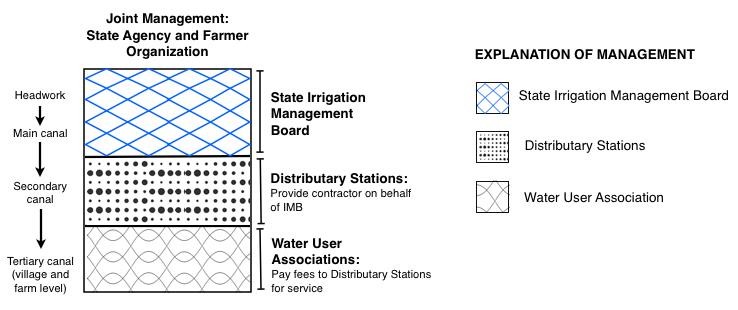/sub-categories/research-papers
Research Papers
Traditional water management systems - An overview of the Ahar-Pyne system in the South Bihar plains in India and the need for its revival - A paper from the Indian Journal of Traditional Knowledge
Posted on 23 May, 2012 04:45 PMThis paper published in the Indian Journal of Traditional Knowledge provides a brief overview of the the Ahar-Pyne system, a traditional water harvesting system still practised in the sout
Soil health management under hill agroecosystem of North East India - A paper from the journal Applied and Environmental Soil Science
Posted on 19 May, 2012 03:33 PMThe paper published in the journal Applied and Environmental Soil Science discusses the need for a viable option for ecorestoration and maintenance of soil resources to sustain long-term soil productivity and improve food security for the region.
Water science in India - Hydrological obscurantism - A paper in Economic and Political Weekly
Posted on 07 May, 2012 12:15 PMThis article by Jayanta Bandyopadhyay in the Economic and Political Weekly deals with the Government of India’s proposal for addressing the twin problems of floods and water scarcity by interlinking rivers.
Resuscitating a failed idea - Notes from Bihar – A paper in Economic and Political Weekly
Posted on 07 May, 2012 11:36 AMThis article by Dinesh Kumar Mishra, Convenor of the Barh Mukti Abhiyan (movement for freedom from floods), Bihar in the Economic and Political Weekly states that the idea of a national interlinking of rivers needs to base itself on the past six decades’ experience of river and flood control measures.
Exploring the spatial associations between census based socioeconomic conditions and remotely sensed environmental metrics in Assam, North East India – A study by Gary R Watmough
Posted on 23 Apr, 2012 01:50 PMPast studies have found associations between land and poverty, however these studies are usually focused on small areas using ground based studies.
Interlinking of rivers project: A disquieting judgement - Ramaswamy Iyer's perspective in the EPW on the recent Supreme Court decision
Posted on 20 Apr, 2012 10:52 PM
1. Introduction
Two writ petitions were filed in 2002 on the subject of interlinking. The judgement finally passed in 2012 directs the implementation of this project. This judgement is disturbing for the following reasons:
Quantitative data on water quality: A compilation of papers that present physico-chemical analyses of various water sources in India
Posted on 24 Feb, 2012 08:31 AMAssessment of physico-chemical quality of groundwater in rural area nearby Sagar city, Madhya Pradesh
This paper presents the results of forty groundwater samples collected from June 2007 to July 2010 in Gambhira and Baheria villages in Madhya Pradesh. The authors conclude that the ground water quality is degraded due to anthropogenic causes.
Once upon a lake: A report on the current status of the lakes of Mahadevpura constituency, Bengaluru with recommendations for restoration
Posted on 23 Feb, 2012 05:55 PMMap of the lakes in Bengaluru, source: ATREE
Trends in private sector participation in the Indian water sector: A critical review - A Water and Sanitation Programme publication
Posted on 23 Feb, 2012 05:54 PMThe study also analyses the direction in which the sector is heading with respect to private sector participation. Since most PPPs are at early stages of operation, this study focuses only on learnings from PPP design and transaction. This study does not seek to assess the operating or financial performance of PPPs.
 This
This 